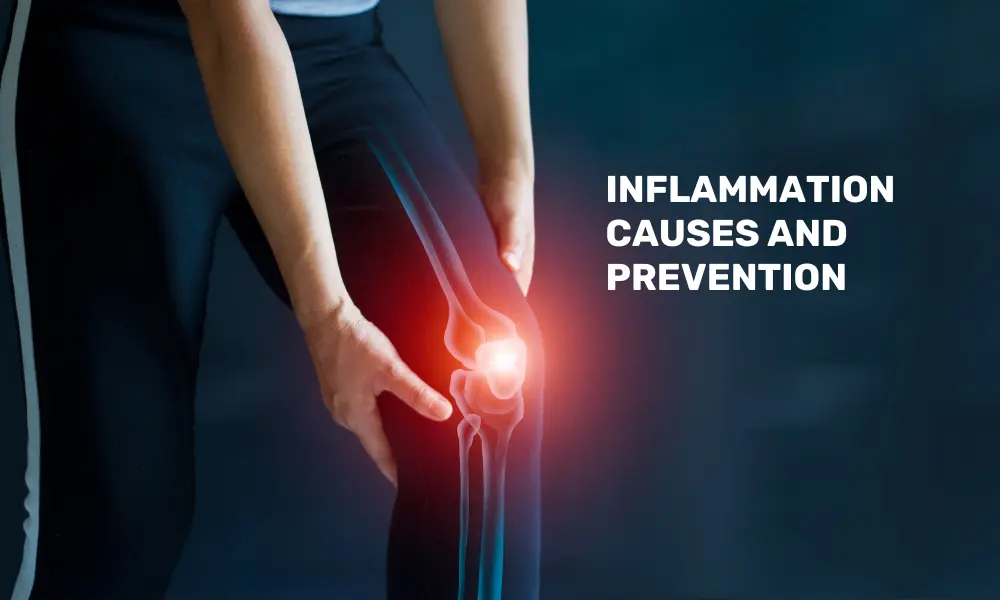Chronic inflammation is generally the root cause of many deadly diseases. Also referred to as slow, long-term inflammation lasting for several months to years, the condition has effects that may differ with the cause of the injury and the ability of the body to repair and overcome the damage.
Even though inflammation is one of the ways your body protects itself from harm, if it goes unchecked, it can damage your body tissues over time, resulting in serious health problems such as heart disease, diabetes, anxiety, depression, dementia, and even cancer.
In normal inflammation, one can notice symptoms such as pain, swelling, skin discoloration, and tiredness. But if it persists, long-lasting inflammation would require immediate medical attention.
Types of Chronic Inflammation
Chronic inflammation can occur in many types, including autoimmune diseases like lupus and psoriasis, cardiovascular diseases, and metabolic diseases.
How to manage Chronic Inflammation?
Healthy Diet
It is important to take care of your diet if you suffer from chronic inflammation. According to experts, eating more fresh fruits, vegetables, and foods that are rich in omega-3 fatty acids, like fish, tofu, walnuts, flax seeds, and soybeans, is the key to getting rid of the condition. You must also include anti-inflammatory foods like grapes, celery, blueberries, garlic, olive oil, tea, and spices like ginger, rosemary, and turmeric.
Make sure to completely avoid refined carbohydrates, red meats, alcohol, fried foods, and highly processed foods, which include white flour products, instant rice, and instant potatoes. Be conscious of your fat sources and significantly reduce your sugar intake.
Stop consumption of sugar.
It is important to cut down on your sugar intake as it can significantly reduce inflammation. According to research, too much consumption of refined sugar – most of which comes from sugary drinks and foods increases inflammation – is linked to serious health issues like heart disease, diabetes, liver disease, kidney failure, and cancer. According to doctors, you must replace foods that are loaded with added sugar and refined carbohydrates to get rid of inflammatory markers. Eat whole foods in your diet as they are loaded with fiber, antioxidants, and other important nutrients to help you thrive and be healthy.
Exercise and workout
Regular workouts help drastically reduce inflammation by helping increase the production of hormones and reducing body fat. According to studies, 30-45 minutes of moderate exercise, like walking, cycling, and jogging can have anti-inflammatory effects. Make sure to begin with a 5-minute walk daily and subsequently increase to 20-30 minutes within a month. You can also try out some fun exercises like Zumba, Pilates, and aerobics to make it more interesting.
Natural herbal supplements
A few natural herbs like ginger, turmeric, and cinnamon are rich in anti-inflammatory properties and essential oils that reduce inflammation and its subsequent side effects. Most of these herbs also help with chronic skin issues and pain caused by inflammation, like arthritis.
Sleep
It is extremely important to regulate and regularize your sleeping patterns to get rid of inflammation. According to studies, not being able to snooze and rest properly negatively impacts your immune system’s inflammatory response, while too much sleep can also increase levels of inflammatory markers. So, according to experts, recommended amounts of sleep for adults include 7-9 hours every night, which helps avoid low-grade inflammation associated with premature aging and chronic diseases.
Chronic inflammation can be uncomfortable. Hence, one must adopt the measures mentioned above to reduce chronic inflammation.
FAQ on Chronic inflammation
How do you reduce body inflammation?
One can reduce body inflammation by eating healthy foods, exercising, avoiding smoking, controlling body weight and reducing stress.
What is the best treatment for chronic inflammation?
-
Eat anti-inflammatory foods
-
Limit or avoid alcohol
-
Avoid inflammatory foods
-
Quit smoking
-
Practice good sleep hygiene
-
Exercise regularly
-
Maintain a healthy weight
-
Practice stress management techniques
What foods reduce inflammation?
-
Fruits such as strawberries, blueberries, cherries, and oranges.
-
Nuts like almonds and walnuts.
-
Tomatoes
-
Green leafy vegetables, such as spinach, kale, and collards.
-
Fatty fish like salmon, mackerel, tuna, and sardines.




